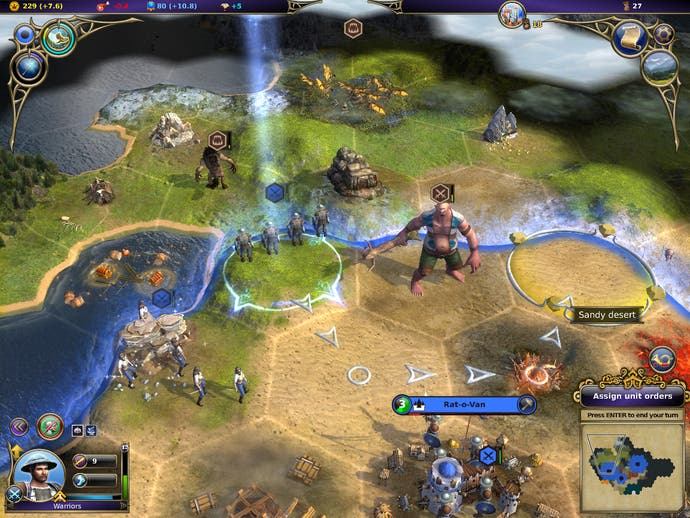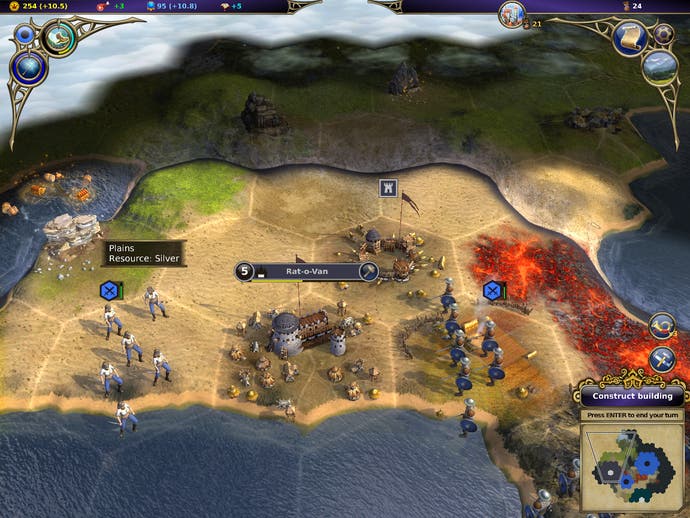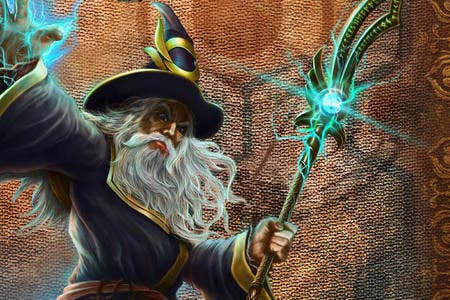Warlock: Master of the Arcane Preview: Reviving Microprose's Magic
Spelling tested.
It's not immediately obvious to everyone, but to us beardier, strategier PC types, the ongoing lack of a decent fantasy grand strategy game makes for a painful hole in our collection. While a spellcasting setting might have suited all sorts of RTS and turn-based titles, more than a few weary wizards will point an aging finger all the way back to 1994, to Microprose's Master of Magic, when they want to cite the definitive example of fantasy empire building. Paradox is hoping to finally change that with Warlock: Master of the Arcane.
"There is always the spirit of Master of Magic wandering out there," says senior writer Pavel Kondrashov, whose own brand of magic might be necromancy. "This spirit is demanding to be brought back to life. Although we started as a developer of sci-fi games, fantasy worlds seemed to have claimed us as their servants." That would explain the towns populated by rogues, ratmen or the living dead, all of them researching new spells or constructing strange magical apparatus under the orders of their Great Mages. Outside their city walls, ogres and giant spiders roam the lands.

Much as Master of Magic resembled the original Civilization, with magical research in lieu of technological and elves instead of Europeans, Warlock is clearly inspired by the latest in Firaxis' series, though from the very start the game's world of Ardania is not only prettier but also much more dangerous.
It's thick with monsters and their lairs, more than a few of which will take a sustained effort to fight past, while the Great Mages of the land cast spells as if from on high, raining fire upon each other's armies or bolstering their towns with special abilities. A little adventuring reveals portals to other planes, entirely new maps which exist in parallel and are often even more diverse in their deadliness.
While each Great Mage will have the ability to ultimately research their way toward a world-conquering spell, if thinking your way to success doesn't appeal then violence solves all kinds of problems. "You could also capture all of the Holy Grounds, the special locations where temples can be built," says Pavel, "Or you could defeat an avatar, a personification of one of Ardania's gods."

Warlock is looking very polished indeed, although it remains to be seen exactly how well it will balance the finer points of its elves and economics. At the moment, it's lacking some of the depth that makes other 4X games compelling, with only rudimentary diplomacy and limited unit customisation. Its AI also remains alarmingly indifferent, though perhaps I'm just too boring a target.
But I hold out hopes for it, because it's bravely testing waters that have long been choppy, perhaps even cursed. Attempts to create either a definitive or spiritual sequel to Master of Magic have failed several times. Original developers Simtex closed after they announced Master of Magic II, while Quicksilver Software's subsequent sequel deal fell through. Then there was Stardock's recent attempt to re-imagine it with Elemental: War of Magic, a failure that cost them dearly.
Due for release this summer, Warlock is presently only a single-player experience, though Pavel adds that multiplayer support will be added after release with, of course, the potential for DLC too. Meanwhile, aging fingers are being crossed, including my own.

